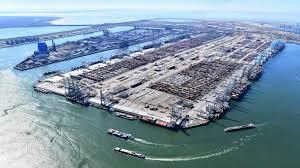Future Outlook for Europe CCUS Market

Introduction
The Europe Carbon Capture, Utilization, and Storage (CCUS) Market is witnessing rapid growth as governments and industries seek to reduce greenhouse gas emissions and achieve climate neutrality. CCUS technology captures carbon dioxide from industrial processes and power generation, stores it underground, or utilizes it for enhanced oil recovery and chemical production. Europe’s stringent environmental regulations, climate targets, and renewable energy integration drive market expansion. Technological advancements in capture efficiency, storage solutions, and utilization applications enhance performance and commercial viability. Investments, public-private partnerships, and international collaborations further support CCUS adoption across the region, positioning Europe as a leader in carbon management solutions.
Market Drivers
Increasing regulatory pressure to reduce carbon emissions drives market growth. Europe’s commitment to climate neutrality by 2050 and renewable energy integration encourages CCUS deployment. Technological innovations in CO₂ capture, transport, and storage improve efficiency and cost-effectiveness. Industrial decarbonization in sectors such as cement, steel, and power generation increases demand for CCUS solutions. Public and private investments, subsidies, and incentive programs stimulate adoption. Rising awareness of environmental sustainability and corporate social responsibility further encourages companies to implement CCUS technologies.
Market Challenges
High capital and operational costs remain key challenges for widespread CCUS adoption. Limited infrastructure for CO₂ transport and storage affects scalability and commercial feasibility. Regulatory complexities and permitting processes across European countries may slow project deployment. Technological limitations, including energy consumption, capture efficiency, and storage safety, impact performance. Competition from alternative carbon reduction strategies, such as renewable energy adoption and electrification, may reduce demand for CCUS. Public perception and social acceptance of underground CO₂ storage can also pose challenges.
Market Opportunities
Opportunities in the Europe CCUS Market are expanding through technological innovation, industrial adoption, and government support. Development of cost-effective and high-efficiency capture technologies improves commercial viability. Integration with industrial processes, power plants, and hydrogen production creates additional utilization pathways. Investment in CO₂ transport infrastructure, storage facilities, and enhanced oil recovery applications supports market growth. International collaborations, EU funding programs, and public-private partnerships accelerate large-scale deployment. Emerging applications in synthetic fuels, chemicals, and building materials increase the demand for captured CO₂, strengthening market potential.
Regional Insights
The United Kingdom, Norway, Germany, and the Netherlands lead the Europe CCUS Market due to strong regulatory frameworks, industrial demand, and technological expertise. Northern European countries are investing in offshore CO₂ storage and cross-border transport infrastructure. Southern and Eastern European nations are gradually adopting CCUS projects supported by EU initiatives and funding mechanisms. Regional growth is influenced by industrial emission volumes, policy support, infrastructure availability, and technological adoption. Collaborative projects and EU-level carbon management strategies further shape market dynamics.
Future Outlook
The Europe CCUS Market is expected to grow steadily as industrial decarbonization, climate policies, and technological advancements drive adoption. Investments in CO₂ capture, utilization, and storage infrastructure will enhance operational efficiency and reduce costs. Government incentives, regulatory support, and international collaborations will continue to facilitate market growth. Expansion of utilization applications in chemicals, synthetic fuels, and building materials will create additional opportunities. As Europe pursues carbon neutrality, CCUS will play a crucial role in reducing emissions from hard-to-abate sectors and supporting sustainable industrial and energy practices.
Conclusion
The Europe CCUS Market is expanding due to regulatory pressure, technological advancements, and industrial demand for carbon reduction solutions. While challenges such as high costs, infrastructure limitations, and regulatory complexities exist, opportunities are growing through innovation, utilization applications, and international collaborations. The United Kingdom, Norway, Germany, and the Netherlands lead adoption, with emerging potential across Southern and Eastern Europe. The market’s future outlook remains positive, with CCUS serving as a critical technology for Europe’s sustainable energy transition and carbon neutrality goals.
- Art
- Education et Formation
- Crafts
- Sciences et Technologies
- Economie
- Politique
- Actualité
- Littérature
- Divertissement
- Histoire
- Health
- Actualité
- Shopping & Commerce
- Music
- Agriculture & élevage
- Voyage et Evènementiel
- Beauté & esthétique
- Religion
- Festival
- Sports
- Fête
- Musique
- Autres



